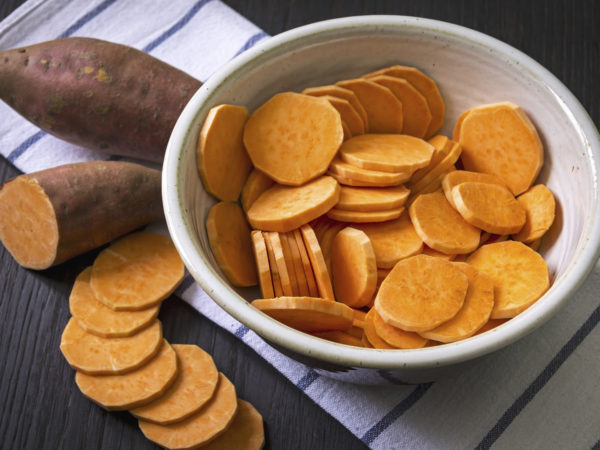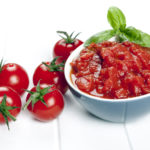Say Yes to Yams?
I’ve heard that sweet potatoes are good for you, but I usually eat them only at holidays, often with a lot of butter and marshmallows. Should I eat them more often? Are they different from yams?
Andrew Weil, M.D. | January 1, 2003

All of the roots labeled “yams” in American supermarkets actually are sweet potatoes, cousins of morning-glories that come in different colors and textures. (True yams are gigantic tropical tubers seldom seen in our grocery stores.) Moist, orange-fleshed varieties are often called “yams,” while drier, yellow-fleshed ones are usually called “sweet potatoes.” Both types are unrelated to regular white potatoes and are much better for you.
It is too bad that many of us only remember to eat sweet potatoes with holiday meals, and then often in dishes including a great deal of added sugar and fat. These preparations are not so healthful, and they also often fail to show off the best qualities of these versatile vegetables. According to Janice Bohac, a research geneticist and plant breeder at the U.S. Department of Agriculture’s Vegetable Laboratory in Charleston, SC, sweet potatoes are packed with nutrients (including carotenoids, copper, and fiber) and rank much lower on the glycemic index scale than white potatoes. That means that even carbohydrate-sensitive individuals can include these good carbs in their diets.
Dr. Bohac is discovering and developing new varieties of sweet potatoes that I hope will expand the limited choices now available in supermarkets. These range from very sweet, moist ones to drier, lighter-fleshed ones. In general, it is best to bake moist, orange-fleshed varieties in a medium oven (about 350-degrees). They should need no added sugar. You can cook drier types in the microwave (five to ten minutes on high, depending on size – be sure to prick them first with a fork) or pan fry them in a little olive oil. To roast sweet potatoes, peel and cube them, toss in olive oil, salt, and pepper, spread them in a baking pan (do not crowd!) and roast, stirring every ten minutes, in a 450-degree oven until they are nicely browned.
When I visited Okinawa, I was delighted to discover sweet potatoes with bright purple flesh! The Okinawans make them into everything from chips to ice cream. Undoubtedly, their pigments provide the same protection from cancer and other diseases offered by the pigments that color the vegetables we are more familiar with.
Bottom line: Eat sweet potatoes more often and experiment with new ways of preparing them. For a delicious meal, try this recipe.
Andrew Weil, M.D.









